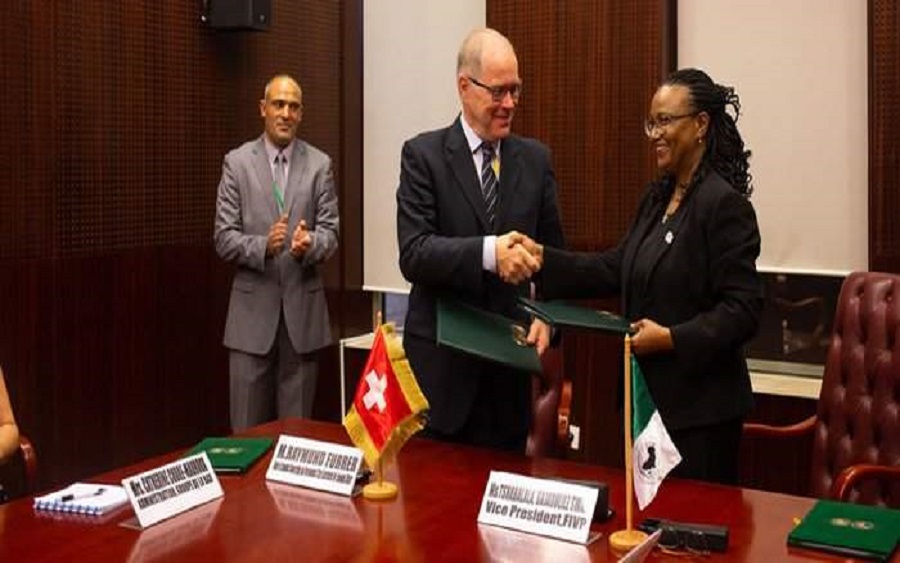Nigeria is among the countries that will benefit from the 3.2 million Swiss francs that was recently donated to the African Development Bank (AfDB) by the State Secretariat for Economic Affairs of the Government of the Swiss Confederation (SECO).
According to a statement released by AfDB, Nigeria, Cote d’Ivoire, Ghana, and other South African countries were selected to participate in the pilot phase of the initiative.
Bank Governor for Switzerland, Raymund Furrer, signed the agreements on behalf of SECO at the Sipopo Conference Centre in Malabo, Equatorial Guinea while the bank’s Vice President for Finance and Chief Finance Officer, Bajabulile Tshabalala, signed on behalf of the bank.
How the fund will be deployed: Three million Swiss francs was donated to the Entrepreneurship Lab (E-Lab) for innovative young entrepreneurs, while 200,000 Swiss francs was donated to the Urban and Municipal Development Fund for Africa, which aims to help African cities plan and manage urban growth and climate-resilient development by improving governance and basic services.
Understanding the E-Lab: The E-Lab, according to the statement, is a component of the AfDB’s ‘Boost Africa’ strategy, that aims to provide innovative young entrepreneurs with financing, technical assistance, and broader ecosystem support through incubators, accelerators, fund managers and others.
About AfDB: The African Development Bank Group is a multilateral development finance institution.
The AfDB was founded in 1964 and comprises three entities: The African Development Bank, the African Development Fund and the Nigeria Trust Fund. The AfDB’s mission is to fight poverty and improve living conditions on the continent through promoting the investment of public and private capital in projects and programs that are likely to contribute to the economic and social development of the region.
While it was originally headquartered in Abidjan, Côte d’Ivoire, the bank’s headquarters moved to Tunis, Tunisia, in 2003, due to the Ivorian civil war; before returning in September 2014.
















